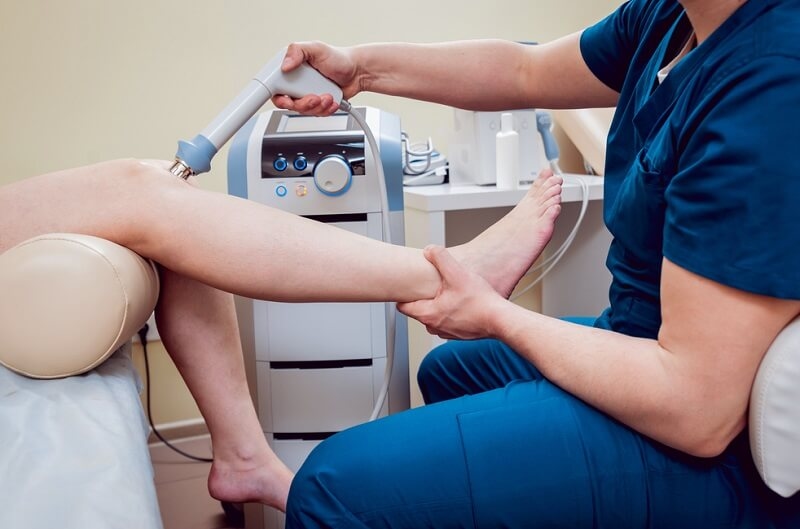The Power of Physiotherapy Sessions in Rehabilitation

Physiotherapy is a type that focuses on the improvement of the mobility of the body. This branch is based on the issues that people face in their everyday movements due to a particular condition. Managing such a chronic condition can be a challenging journey for the mind as well as the body. However, with the help of physiotherapy sessions, you can not only regain strength, mobility, and independence but also improve your mental hygiene.
Physiotherapy sessions are a vital step in the rehabilitation process. The combination of various techniques, exercises, and modalities is designed to enhance healing, restore function, and improve the overall quality of life. Below are the key essentials of why physiotherapy sessions are the most powerful way of recovering:
What is Physiotherapy?

Physiotherapy, also known as physical therapy, is a specialized field in the healthcare profession that focuses on optimizing physical function and mobility. It encompasses a broad range of techniques and interventions based on the study of the human body and its potential for movement. These techniques are specifically tailored to meet individual needs that are connected to the body aspects associated with movement. Physiotherapists are highly trained professionals who assess, diagnose, and treat a wide array of conditions, including musculoskeletal injuries, neurological disorders, respiratory issues, and more. Physiotherapy sessions comprise planned activities that are supervised by these specialists, resulting in solving the body's problems of movement.
The Dynamic Science Behind Physiotherapy:
One of the greatest strengths of physiotherapy sessions is that it caters to everyone with an individualized approach. Each patient is unique, with specific needs and goals. A physiotherapist thoroughly assesses the individual, taking into account their medical history, current condition, and personal aspirations.
Based on this assessment, a personalized treatment plan is developed, addressing the specific challenges and promoting optimal recovery. This tailored approach ensures that the physiotherapy sessions are purposeful and effective. Not only this means that your conditions are looked after in detail, but also that the results can be established only when you follow them.
Focusing on Pain Relief and Healing:
Pain is visible proof that the rehabilitation process is working or not. Physiotherapy sessions offer various techniques and movements aimed at relieving pain and facilitating healing. Manual therapy, such as joint mobilization and soft tissue techniques, helps reduce pain, improve joint mobility, and promote tissue healing.
Additionally, electrotherapy modalities, including ultrasound and transcutaneous electrical nerve stimulation (TENS), are often employed to alleviate pain and reduce inflammation. Through these interventions, physiotherapy sessions become an essential component in managing discomfort and promoting recovery.
Recovering Mobility and Function:
Loss of mobility and impaired function can significantly impact your daily life. Physiotherapy sessions play a pivotal role in restoring movement and function through targeted exercises and interventions. Therapeutic exercises, such as stretching, strengthening, and balance training, are prescribed to improve muscle strength, flexibility, and coordination.
Assistive devices and gait training may also be utilized to enhance mobility and independence. By focusing on restoring function, physiotherapy sessions empower individuals to regain control over their bodies and actively participate in their recovery.
Emphasising The Respiratory Function:
Physiotherapy is not limited to musculoskeletal rehabilitation; it also plays a vital role in managing respiratory conditions. For individuals with chronic obstructive pulmonary disease (COPD), asthma, or other respiratory disorders, physiotherapy sessions can improve lung capacity, breathing techniques, and overall respiratory function.
Techniques such as breathing exercises, airway clearance techniques, and pulmonary rehabilitation programs can help reduce symptoms, enhance exercise tolerance, and improve quality of life. Keeping a routine for these types of exercises is the key to establishing the change that your body conditions require in order for you to become better.
Extensions to Neurological Rehabilitation:

Neurological conditions like stroke, spinal cord injuries, and multiple sclerosis, demand specialized rehabilitation for optimal recovery. Physiotherapy sessions are targeted interventions that address motor control, balance, and coordination deficits associated with these conditions. Neurorehabilitation techniques, including neurodevelopmental treatment (NDT), constraint-induced movement therapy (CIMT), and task-specific training, are some sessions to maximize functional outcomes and promote neuroplasticity. Physiotherapy becomes a guiding force in the journey toward regaining independence and improving the quality of life for individuals with neurological conditions.
Emotional Aid and Motivation:
The rehabilitation process is usually emotionally challenging, and you may experience episodes of frustration, fear, or low confidence. Physiotherapists understand the psychological aspects of recovery and provide not only physical guidance but also behavioral support to create a soothing environment of recovery for you. By establishing a supportive and motivating environment, physiotherapy sessions encourage you to persist through difficult times and stay committed to your recovery goals.
This holistic approach significantly contributes to the overall success of the rehabilitation process. The connection of your mind that drives your will to perform any action and your body that executes the given set of actions is bridged and maintained by these physiotherapy sessions.
Conclusion:
Physiotherapy sessions incapacitate the transformative power in the process of rehabilitation for a given condition. Understanding the importance of following a regulated and planned routine of activities, can change your lifestyle within months instead of years. Physiotherapists master various techniques, exercises, and modalities to empower you on the glorious path to recovery. With each session, patients regain strength, mobility, and independence, ultimately improving their overall quality of life. Physiotherapy is a beacon of hope, guiding individuals toward successful rehabilitation and helping them embrace a brighter future. So what are you waiting for? begin your transformation journey today.
This content was created by AI
-1717753922-r.jpg)